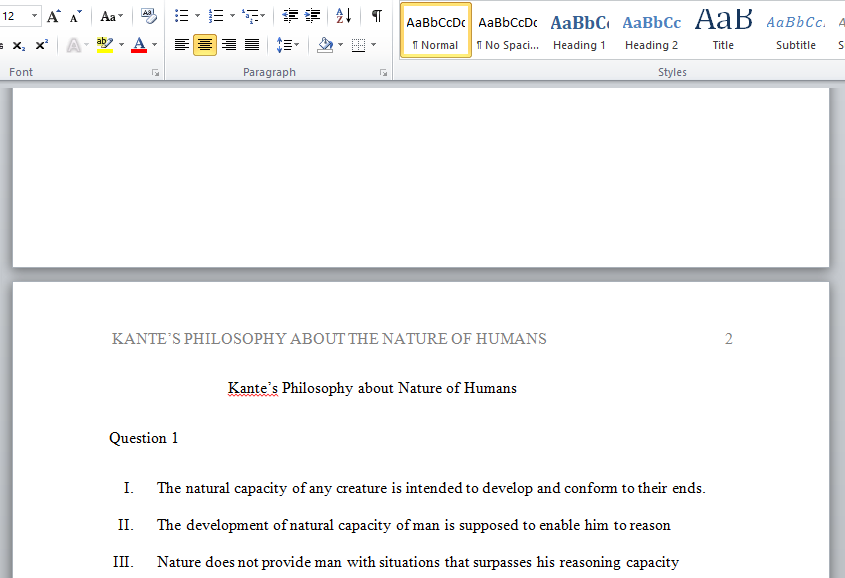Discuss Kante’s assumptions of nature of humans
In the third paragraph, he sets out 10 assumptions that he must make concerning the nature of
the first humans.
QUESTION #1: Present the list of these assumptions and the reason Kant gives for them. He
does not begin with man’s “raw state”, but only after it has developed certain skills in the
powers of its nature.
In the introduction, Kant will list 4 steps that reason takes while man is still in the garden. The
first step is discussed in paragraphs 4 and 5.
QUESITION #2: How was man originally guided? What was the change that began the history of
freedom and reason? What objects caused this change and why? What was in “contradiction”?
What occasioned the episode? What happened within the soul of these humans? Why is this
decisive for the human way of life? What were the effects?
QUESTION #3: What second instinct was affected by reason’s emergence? In what manners was
this accomplished? How and why is this a greater expression of reason than the first step? Set
out the steps of man’s internal operations in this stage.
QUESTION #4: Briefly explain the third step in the development of reason. What are the pluses
and the minuses here for human life.
QUESTION #5: What is the fourth step depicted in paragraph 9 and developed in the Remarks?
Who is man identical to now that he is no longer a mere animal? How is man’s relationship to
nature after this step? How is each man’s relationship to his fellow human now, and how is this
“far more necessary to establishing society than inclination and love”? [p. 53]
3
In Remarks, Kant explains that the birth of reason and freedom in man leads to the progress
and perfection of the species but leaves the lives of the individual modern man in a state of
conflict between his natural capacities and his cultural needs and demands. See especially the
footnote on pages 54 and 55. “But since these natural capacities were given man in his natural
state, they will conflict with culture as it proceeds, just as it will conflict with them until art so
perfects itself as to be a second nature, which is the final goal of the human species’ moral
vocation.”
QUESTION #6: What does Kant mean by an art that leads to a second nature which is the
perfection of the species? Will the natural capacities still exist? Will their desires be satisfied?
In the Resolution of History section, Kant establishes three phases of our early history based on
how man earns his preservation, first as hunters/gatherers, then as a conflicting era where the
herdsmen and the farmers go to war with each other. The final stage is the stage of political
society and government, which is a state of war between the various nations.
In the Concluding Remarks, he sums up our situation.
QUESTION #7: How are we benefited in our understanding of our self through our
understanding of this story of our history? In short, what does he teach in the last two
paragraphs of the work on page 59?
Answer preview :

Word limit : 1232 words
